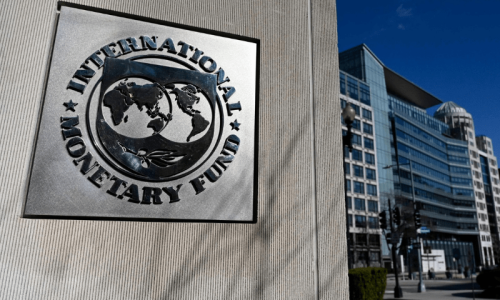
KARACHI: The killing of two protesting employees of the Pakistan International Airlines in a clash with security forces here on Tuesday sparked widespread agitation and caused a complete suspension of the national flag carrier’s flight operations across the country.
While the two victims lost their lives because of bullet wounds and the Joint Action Committee (JAC) of the PIA employees categorically blamed the Sindh Rangers for the killing, neither police nor the paramilitary force took responsibility for the shooting.
The incident also put the federal government, which had enforced the Essential Services (Maintenance) Act, 1952, in the PIA for six months, in an awkward position as PIA employees in Lahore, Rawalpindi, Peshawar and other cities suspended their work and brought flight operations to a standstill as soon as they got the news of killing of their colleagues in Karachi.
In Lahore, PIA employees said that no demonstration or suspension of flight operations was planned, but the killings in Karachi left them with no option but to go for a complete strike. “Now we will shut down the flight operations across the country and show the government our strength and unity. Now our demand is not only to stop privatisation of PIA but also bring to justice those involved in the killing of two employees,” said an employee.
Airline’s chairman Nasser Jaffer resigns; flight operations suspended
In Rawalpindi, a rally will be taken out against the Karachi killings on Wednesday.
Funeral prayers for the two employees will be offered outside the Benazir Bhutto International Airport.
In a late-night development, a senior airline official told Dawn that PIA Chairman Nasser Jaffer had tendered his resignation.
The JAC had on Monday announced that it would bring the flight operations to a standstill from Tuesday morning as part of their protest against the proposed privatisation.
Hundreds of employees, including women, gathered at the PIA headquarters near Karachi airport’s old terminal to defy the essential services act and lodge their protest against the proposed privatisation.
The peaceful protest turned violent when PIA workers started marching towards the Jinnah Terminal and policemen in riot gear used a water cannon, lobbed teargas shells and baton-charged them in a bid to stop their march towards the airport.
Rangers also joined the police and resorted to baton-charge to disperse the protesters who also scuffled with law-enforcers to make their way to the airport.
“During the scuffle some shots were fired that caused panic and fear among the workers,” said JAC leader Chakar Shah. “Later, we found several people lying in a pool of blood.”
The wounded were taken to nearby medical centres and later shifted to the Jinnah Postgraduate Medical Centre, but two of them were pronounced dead.
“We received four persons with gunshot wounds and two of them died,” said Dr Seemin Jamali, the head of the JPMC’s emergency unit.
She said that the dead were identified as aircraft engineer Saleem Akbar and Inayat Raza of the PIA’s communications department.
She said that those who suffered injuries due to baton-charge and teargas shelling were released after treatment.
Captain Sohail Baloch of the JAC blamed the Sindh Rangers for carrying out firing on unarmed protesters.
“When they [Rangers troops] came here our workers welcomed them. But they crossed all limits. We can accept baton-charge, use of water cannon and even teargas shelling but how can we accept straight firing on our workers,” he told reporters in the evening.
A spokesman for the Sindh Rangers promptly denied his allegation and said the soldiers were only assisting police maintain law and order.
A senior Karachi police officer, DIG Kamran Fazal, also denied the involvement of police in the firing and promised to hold a “transparent” investigation.
Captain Baloch vowed to continue the protest and warned that the PIA operations would be affected.
The PPP-led Sindh government condemned the killing of the two employees and announced Rs2 million each as compensation.
Sindh Chief Minister Syed Qaim Ali Shah met the JAC leaders and offered to mediate between them and the federal government. The JAC mandated him to play a role and to stop the proposed privatisation as they were ready to talk to federal ministers Khawaja Saad Rafiq and Ishaq Dar as well as Speaker of the National Assembly Ayaz Sadiq since “they are reasonable people and have a key to settle the issue”.
A statement issued by the Chief Minister’s House said: “The CM spoke over phone to Railways Minister Khawaja Saad Rafiq during a meeting with the JAC leaders and conveyed him a message for Prime Minister Nawaz Sharif to settle the issue amicably.”
Zulfiqar Ali from Peshawar, Zulqernain Tahir from Lahore and Mohammad Asghar from Rawalpindi contributed to this report.
Published in Dawn, February 3rd, 2016

















































